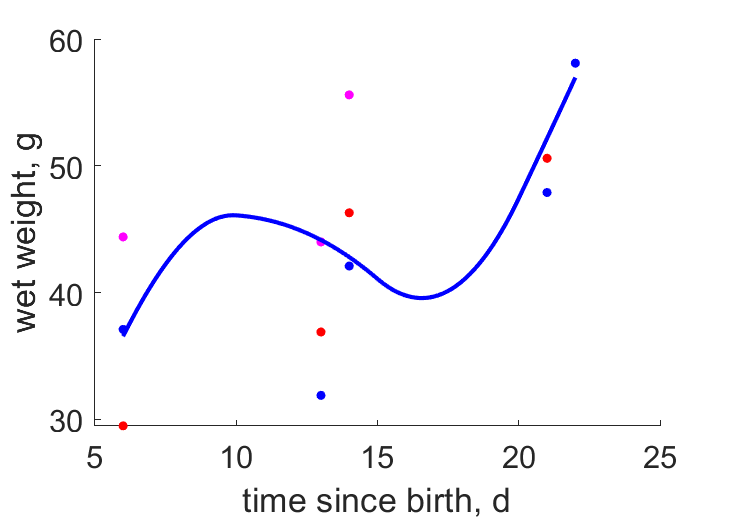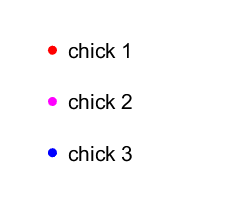Predictions & Data for this entry
| Model: std | climate: BSk, Dfb | migrate: Ml | phylum: |
| COMPLETE = 2.5 | ecozone: THn | food: biCv | class: |
| MRE = 0.029 | habitat: 0iTh, 0iTf | gender: Dg | order: |
| SMSE = 0.003 | embryo: Tnwf | reprod: O | family: |
Zero-variate data
| Data | Observed | Predicted | (RE) | Unit | Description | Reference |
|---|---|---|---|---|---|---|
| ab | 22 | 23.21 | (0.05521) | d | age at birth | avibase |
| tx | 21 | 21 | (0.0001566) | d | time since birth at fledging | RichDeWe1980 |
| tp | 63 | 61.98 | (0.01618) | d | time since birth at puberty | guess |
| tR | 365 | 365 | ( 0) | d | time since birth at 1st brood | avibase |
| am | 3285 | 3262 | (0.007147) | d | life span | avibase |
| Ww0 | 10.3 | 10.53 | (0.02253) | g | initital wet weight | avibase |
| Wwb | 7.5 | 7.197 | (0.04037) | g | initial wet weight | avibase |
| Wwi | 65.6 | 66.21 | (0.009363) | g | ultimate wet weight for females | avibase |
| Wwim | 54.7 | 54.73 | (0.0005095) | g | ultimate wet weight for male | avibase |
| Ri | 0.008219 | 0.008149 | (0.008553) | #/d | maximum reprod rate | avibase |
Uni- and bivariate data
| Data | Figure | Independent variable | Dependent variable | (RE) | Reference |
|---|---|---|---|---|---|
| tW |   | time since birth | wet weight | (0.1119) | RichDeWe1980 |
Pseudo-data at Tref = 20°C
| Data | Generalised animal | Psiloscops flammeolus | Unit | Description |
|---|---|---|---|---|
| v | 0.02 | 0.0257 | cm/d | energy conductance |
| p_M | 18 | 885.3 | J/d.cm^3 | vol-spec som maint |
| k_J | 0.002 | 0.03588 | 1/d | maturity maint rate coefficient |
| k | 0.3 | 0.2972 | - | maintenance ratio |
| kap | 0.8 | 0.9379 | - | allocation fraction to soma |
| kap_G | 0.8 | 0.7989 | - | growth efficiency |
| kap_R | 0.95 | 0.95 | - | reproduction efficiency |
Discussion
- Males are assumed to differ from females by {p_Am} only
- mod_1: Pseudo-data point k is used, rather than k_J; Data set tp and parameter t_R are added, the latter replacing clutch interval t_N. Postnatal T is based on PrinPres1991, see get_T_Aves. See further the revision page, theme puberty
Bibliography